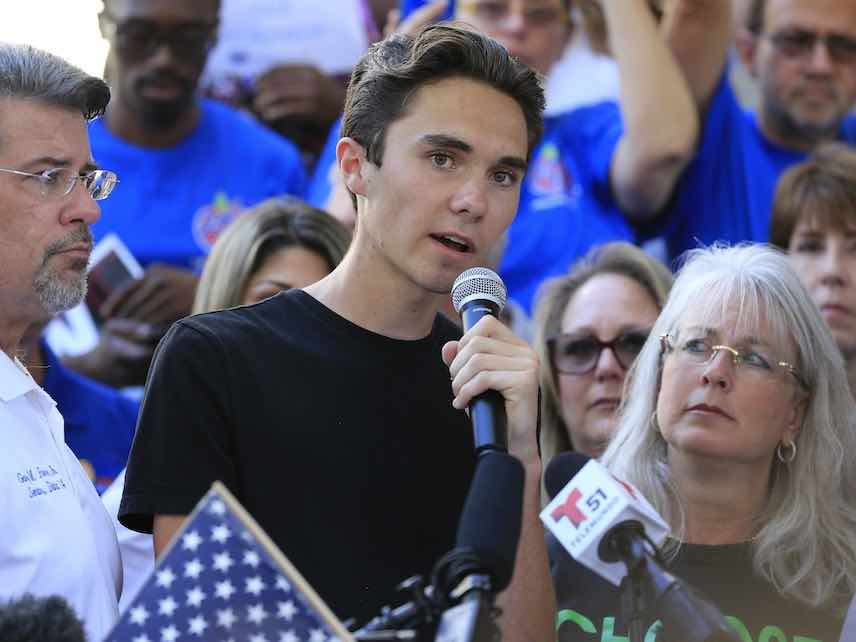The National School Walkout Reveals What Students Really Want: Safe Spaces
"It's about keeping people safe."

Students across the country plan to walk out of class at 10:00 a.m. today to protest the government's failure to prevent crimes like the massacre at Parkland by tightening gun laws.
In doing so, the students are providing more evidence that increased safety is indeed the paramount goal of modern millennial and Gen Z political activism. They want to feel comfortable and protected, and they are willing to curtail other people's rights to achieve this.
"It's not Republican or Democrat; it's about keeping people safe," Arielle Geismar, a 16-year-old student from Manhattan, told Vox.
Another student activist, 18-year-old Fiorina Talaba, said, "We know what we want from our society: to have less guns and, at some point, no guns at all."*
Perhaps ironically, the administrators at Geismar's school also cited public safety as their top concern, and used it to justify their reticence about the planned walkout:
Arielle Geismar, a 16-year-old junior at the Beacon School in Manhattan, said her school administrators were primarily focused on student safety. "There definitely was pushback in terms of disrupting classes," she said. "But we're going to be loud, and we're not going to apologize for that. I think that's also the point of the walkout. We're going to make ourselves heard whether you want to hear it or not."
Of course Geismar and her fellow activists shouldn't apologize for making themselves heard, being loud, or walking out of class. Nor should their First Amendment rights be curtailed because some overly cautious administrators are concerned about safety. Public safety is frequently used as a pretext for trampling the civil rights of some group or another. Think of racist stop-and-frisk policies, the anti-Muslim bigotry of domestic War on Terror paranoia, or the immigrant purges of the Trump era. Such measures are often justified on grounds of safety, security, and comfort.
Young people would therefore be justified in treating any safety-related abridgments of their rights with skepticism. Yet this post-Parkland student activism seems grounded in the exact same thinking: that we should sacrifice the rights of one group—gun owners—in order to make everybody else feel safer.
Whether doing this would actually make anyone safer is of course the subject of considerable policy debate. But just feeling safe is incredibly important to the current crop of high school and college students, who came of age during a time of increasingly paranoid parenting and hypersensitivity toward harm. Students certainly do deserve literal safety from violence. In many ways, they already have it: Schools are safer than they used to be, and mass shootings are no more common. Unfortunately, these actual, dramatic social gains might seem counterintuitive to kids who live at a time of constant media coverage of murder, terror, and death. And the right caters to these fears by pushing airport-style security, more cops in schools, and metal detectors as reasonable solutions to school shootings, even though there's little reason to believe these ideas work.
One of the main goals of this movement is to raise the legal age to purchase an AR-15 from 18 to 21, so these young activists are sometimes clearly willing to impose limits on their own freedoms as well as other people's. Whatever you think of the gun issue, there's reason to be concerned about just how much freedom the fragile generation would happily give away in order to feel safer—even when they're getting safer already.
CORRECTION: The statement, "We know what we want from our society: to have less guns and, at some point, no guns at all," was initially attributed to Geismar, but it was said by Talaba.


Show Comments (287)